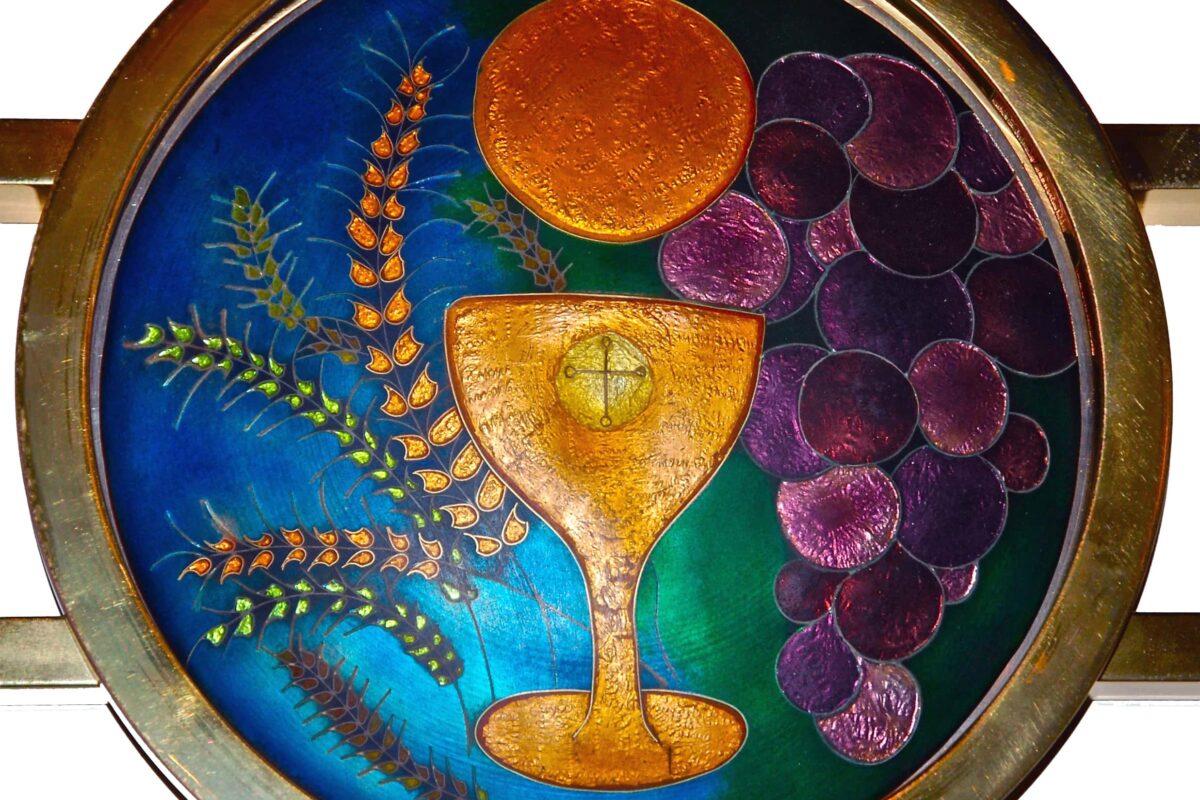Last week, as we were preparing to admit six children to Holy Communion before Confirmation, our curate turned to me and said, ‘So we admit them at age 7? Explain this to me theologically.’
And I had to explain that I couldn’t – that the only reason we do admission to Holy Communion at 7 is that we’re not allowed to do it from baptism, that our policy is more a compromise than a coherent theological principle.
Admission from baptism is standard practice in the Episcopal Church in the USA, where I was raised. Toddlers come up to the rail with their hands out. They take the bread. They say, ‘Amen.’
Whenever I tell people this, the same questions tend to arise:
If we admit children to communion at baptism, then what is confirmation for?
Independent of its historical affiliations with entrance to the Eucharist, confirmation is a chance for young people to make a mature statement of faith – to decide for themselves that they want to claim the promises made for them at baptism.
So I ask instead, if it doesn’t include admission to Communion, then what is baptism for?
Most Anglicans no longer believe that baptism is for the washing away of original sin, where we rid the child of the stain of its conception. Instead, we generally see baptism as the initiation of a person into the Body of Christ. So either it means full membership in the Body of Christ, including a place at the Lord’s table, or it doesn’t. Telling a child that they belong fully to Jesus, then denying them the sacrament that brings them close to Jesus sells children short. It denies them the full meaning of their place in the Body of Christ and disobeys Jesus’ commandment to let the little children come to him.
So I ask, if it’s not for the washing away of original sin, and it’s not full admission into the Body of Christ, including the Eucharist, then what is it for? The danger is that baptism becomes no more than a picturesque naming ceremony.
Children are allowed to participate in other ways, aren’t they? They can come to Jesus through Sunday School and worship without receiving communion until they’re older.
If we believe that, then we must believe that the Eucharist isn’t really that important. If children can participate fully in the life of the church without receiving communion, then communion must not matter.
I don’t believe that. And the children gathered at the communion rail, hungry for closeness to Jesus, asking why I tell them, ‘No, you can’t have this,’ don’t believe it either. They know they’re being barred from something important. It’s not our table. It’s Jesus’. If he calls the children to come to him, who are we to turn them away?
Wanting it doesn’t mean they should have it. They don’t understand what it means, and that’s crucial to receiving the sacrament.
What about adults with additional needs, who may never reach the intellectual level of a 7-year-old? Do we ban them from the table for life, due to their lack of understanding?
And how much does any one of us truly understand the Eucharist? Isn’t that the whole meaning of a sacred mystery, that it’s something we can’t truly comprehend? That the experience is something transcendent and impossible to put into words?
In no other area of life do we treat children this way. We don’t require a 1-year-old child to understand and verbalise the meaning of their birthday cake, and make them watch the adults eat if they can’t. We don’t make children watch adults play with paint, and visit art galleries to learn about Monet, before we give a toddler their own paint set. In the rituals of family life, and in education, we let children learn by experiencing the world along with us. Learning is a sensory, interactive experience – if we want children to meaningfully learn about the Eucharist, they need to participate in the Eucharist.
After all, they’re baptised. They’re members of the Body of Christ, just as much as you or I – shouldn’t that be enough?
Margaret Pritchard Houston is Families Worker at St George’s Campden Hill and runs Mustard Seed Kids, offering resources and training in children’s work.
Image: Eucharist cloisenee medallion by wplynn, used under Creative Commons licence.
Parishes wishing to explore admitting children to Holy Communion should consult the Diocese of London’s guidelines.
